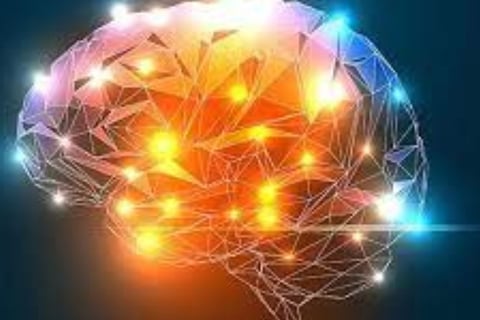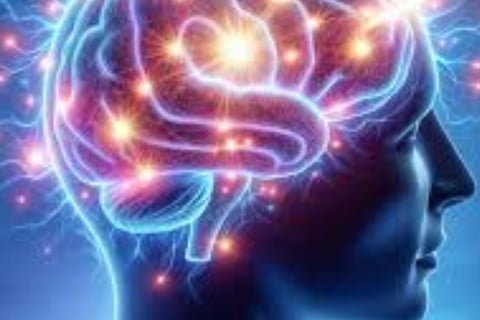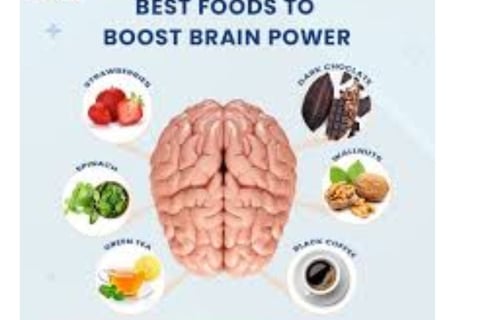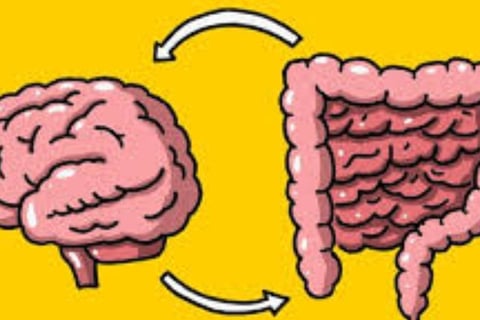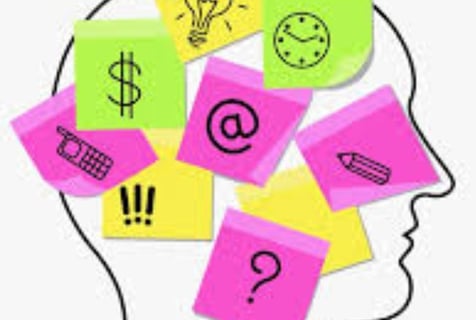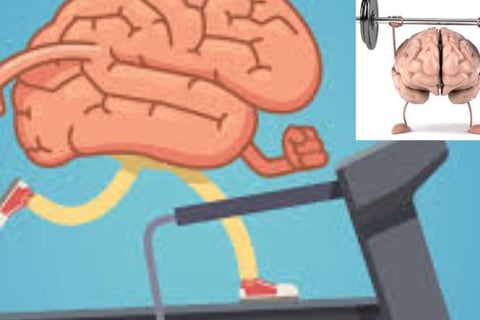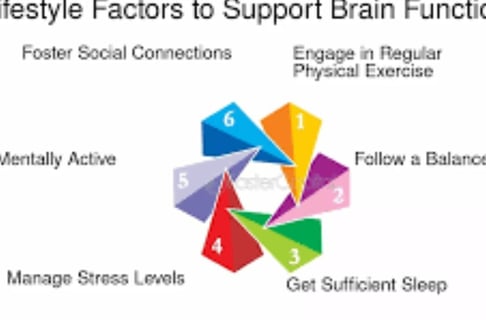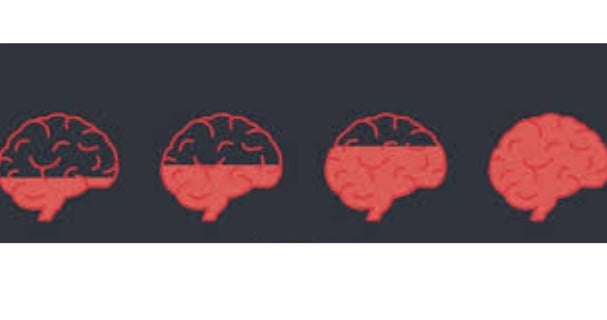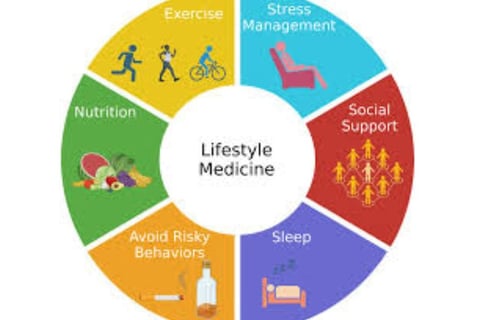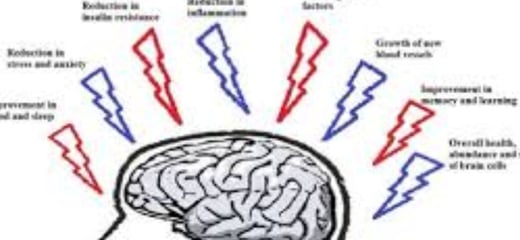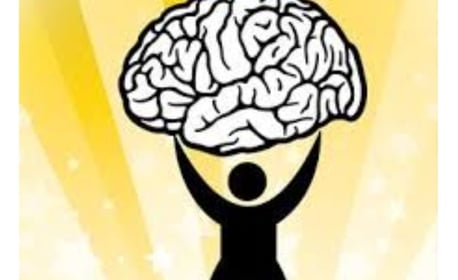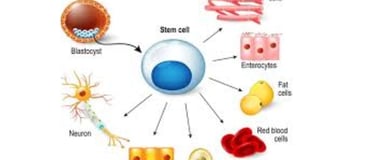
Boost your brain power : Dr Hassan Alwarraqi method
Enhance your cognitive skills and boost brain power with quick 7-minute daily routines. Incorporate focus-building activities, memory exercises, and natural antioxidants like raw and manuka honey f...
NERVOUS SYSTEM
Dr Hassan Alwarraqi
11/14/202411 منٹ پڑھیں


Boost your brain power : Dr Hassan Alwarraqi method
Introduction
Your brain is perhaps the most remarkable organ in your body, capable of incredible feats of memory, creativity, and problem-solving.
Like any other part of your body, it requires regular exercise to maintain and improve its capabilities.
This guide will explore various evidence-based methods to enhance your cognitive function, memory, and overall brain health.
stress on the use of by appling dr hassan alwarraqi method of using fasting and honey to Boost Your Brain Power .
Quick Start: The 7-Minute Brain Boost
Start your day with this quick routine to activate your cognitive functions:
1. Deep Breathing (1 minute): Take 6-8 deep breaths, focusing on each inhale and exhale
2. Cross-Body Movements (1 minute): Alternate touching your right hand to your left knee and vice versa
3. Memory Recall (1 minute): Recall everything you did yesterday in reverse order
4. Math Challenge (1 minute): Count backward from 100 by 7s
5. Visualization (1 minute): Imagine a familiar room and mentally list every object in it
6. Word Generation (1 minute): Pick a letter and list as many words as possible starting with it
7. Mindful Observation (1 minute): Focus on your surroundings and notice five new details
Core Brain Exercise Categories
1. Memory Enhancement Exercises
- Number Recall : Memorize phone numbers instead of saving them
- Story Method : Create a story linking items you need to remember
- Memory Palace : Associate information with specific locations in a familiar place
- Reverse Memory : Recall daily events in reverse chronological order
- Pattern Recognition : Practice remembering and completing number or word sequences
2. Focus and Concentration Builders
- Mindful Reading : Read a paragraph, then summarize it without looking
- Single-Task Focus : Complete one task without any distractions for increasing periods
- Object Tracking : Follow multiple moving objects with your eyes
- Meditation : Practice focused attention on breath or body sensations
- The Pomodoro Technique : Work in focused 25-minute intervals
3. Cognitive Skill Enhancement
- Problem-Solving Puzzles : Sudoku, crosswords, or logic problems
- Strategy Games : Chess, Go, or other strategic board games
- Language Learning : Study a new language using apps or courses
- Musical Training : Learn to play an instrument or read music
- Creative Writing : Write stories or poetry to enhance verbal skills
4. Physical Exercises for Brain Health
- Finger Exercises :
- Thumb-to-finger touches with increasing speed
- Hand-write instead of typing
- Practice fingerspelling
- Learn basic piano scales
- Try finger yoga positions
- Cross-Body Movements :
- Cross-crawl exercises
- Bilateral coordination activities
- Dancing
- Juggling
- Tai Chi or yoga
5. Digital Brain Training
- Brain Training Apps : Lumosity, Peak, or Elevate
- Online Chess : Play against computers or real opponents
- Memory Games : Digital card matching or sequence games
- Pattern Recognition : Visual pattern completion exercises
- Speed Training : Quick-reaction games and exercises
Specialized Programs to Boost Your Brain Power
For Seniors
- Gentle physical exercises combining movement and memory
- Social interaction through group activities
- Regular reading and discussion groups
- Simple puzzle games with gradual difficulty increase
- Music appreciation and learning
For Students to enhance brain capability
- Active recall practice
- Mind mapping techniques
- Spaced repetition learning
- Note-taking strategies
- Memory palace techniques
For ADHD Management in conjunction to other treatment
- Short, focused exercise intervals
- Rhythmic activities
- Sequential task organization
- Timer-based focus exercises
- Movement-based learning
Daily Habits for Cognitive Enhancement
Nutrition for Brain Health
- Omega-3 rich foods
- Antioxidant-rich fruits and vegetables
- Adequate hydration
- Limited processed foods
- Regular, balanced meals
Lifestyle Factors to boost brain function
- Quality sleep (7-9 hours)
- Regular physical exercise
- Stress management
- Social interaction
- New learning experiences
Measuring Progress in brain boost
Track These Metrics:
1. Memory recall accuracy
2. Task completion time
3. Focus duration
4. Problem-solving speed
5. Learning retention rate
Regular Assessments:
- Weekly progress reviews
- Monthly cognitive challenges
- Quarterly skill assessments
- Annual comprehensive evaluation
Tips for Success
1. Start gradually and increase difficulty over time
2. Maintain consistency in practice
3. Vary exercises to challenge different cognitive domains
4. Take breaks to prevent mental fatigue
5. Celebrate small improvements
6. Combine different types of exercises
7. Stay socially engaged
8. Keep learning new skills
Common Questions Answered in Boost Your Brain Power
How to Activate Your Cognitive Brain?
Engage in novel activities, challenge yourself with puzzles, learn new skills, and maintain social connections.
The key is consistent mental stimulation through varied activities.
How to Improve Memory?
Combine visualization techniques, regular practice of recall exercises, adequate sleep, and healthy lifestyle habits.
Use mnemonic devices and spaced repetition for better retention.
How to Stay Mentally Active?
Incorporate daily brain exercises, maintain social connections, pursue new hobbies, read regularly, and engage in physical exercise.
Variety is crucial for maintaining mental agility.
How to Increase Focus?
Practice mindfulness, eliminate distractions, use the Pomodoro Technique, get adequate sleep, and regularly challenge yourself with concentration exercises.
Maximizing Boost Your Brain Power
Consistency:
Like any muscle, the brain needs regular exercise to stay sharp. Commit to doing these exercises daily for best results.
Hydration:
Staying hydrated ensures your brain functions at its best, so don’t forget to drink water.
Sleep:
A good night’s sleep consolidates the memories and skills you’ve learned throughout the day.
Conclusion in Boost Your Brain Power
Brain exercise is a journey, not a destination.
The key to success is consistency and variety in your cognitive training routine.
Start with the exercises that appeal to you most, and gradually incorporate others as you build your cognitive fitness routine.
Remember that every brain is unique, so personalize these exercises to fit your needs and interests.
Remember to consult with healthcare professionals before starting any new exercise routine, especially if you have specific health concerns or conditions.
by appling dr hassan alwarraqi method of using fasting and honey to Boost Your Brain Power
raw honey and Manuka honey to Boost Your Brain Power
Honey, particularly raw honey and Manuka honey, offers a variety of natural compounds that can benefit brain health, focus, and cognitive function.
While all honey types share some health benefits, Manuka honey is considered a superfood with distinct advantages for mental performance and overall brain health.
Here’s a look at how regular and Manuka honey can support brain power:
1. Antioxidant Boost
Both regular honey and Manuka honey are rich in antioxidants, but Manuka honey has a particularly high concentration.
Antioxidants are crucial for protecting the brain from oxidative stress, which can harm neurons and impair cognitive function over time.
By neutralizing free radicals, honey may help reduce brain inflammation, a factor often linked to neurodegenerative diseases like Alzheimer’s.
2. Enhanced Focus and Memory
The natural sugars in honey, especially fructose and glucose, provide a slow-release energy boost to the brain.
This is helpful for memory and focus, especially during tasks requiring sustained attention.
Manuka honey’s high content of methylglyoxal (MGO), a compound with antimicrobial properties, has also been linked to enhanced mental clarity and alertness.
3. Support for Good Sleep (Improving Brain Recovery)
Honey can aid sleep, which is essential for cognitive health. Regular honey encourages the brain to produce melatonin, which helps regulate the sleep-wake cycle.
Manuka honey, with its unique properties, may also help by stabilizing blood sugar and promoting the release of melatonin, helping you achieve restorative sleep.
Deep sleep is essential for brain recovery and memory consolidation.
4. Gut-Brain Connection
Manuka honey is particularly effective in supporting gut health due to its antimicrobial properties.
A healthy gut microbiome has been linked to improved cognitive function and emotional well-being.
By supporting beneficial gut bacteria and reducing harmful microbes, Manuka honey may indirectly support brain health through the gut-brain axis, potentially boosting mood, memory, and focus.
5. Reducing Inflammation
Chronic inflammation negatively affects brain health and can lead to cognitive decline.
The polyphenols found in honey have anti-inflammatory effects, which may reduce inflammation in the brain.
Manuka honey, which contains higher levels of these polyphenols, can be especially beneficial for reducing systemic inflammation and may aid in maintaining cognitive function as you age.
Using Honey to Support Boost Your Brain Power
Add a teaspoon of honey to your tea, smoothie, or yogurt in the morning to get a natural energy boost.
Try Manuka honey before bed to help stabilize blood sugar and promote restful sleep.
Use honey as a natural sweetener in place of refined sugars, which have been linked to impaired brain function over time.
Both regular honey and Manuka honey offer various benefits that contribute to brain power and cognitive health.
By incorporating honey mindfully into your diet, you can support focus, memory, and long-term brain health.
Fasting to Boost Your Brain Power
when practiced outside of Ramadan, can offer significant benefits for brain health, cognitive function, and overall mental clarity.
Whether it’s intermittent fasting, alternate-day fasting, or periodic extended fasts, these practices support the brain’s resilience and functionality in multiple ways.
Here’s how fasting boosts brain power:
1. Enhanced Brain Plasticity and Cognitive Function
Fasting increases the production of brain-derived neurotrophic factor (BDNF), a protein essential for brain plasticity.
BDNF plays a key role in creating new neurons and strengthening existing ones, which improves learning, memory, and overall cognitive function.
Higher levels of BDNF are also linked to a reduced risk of neurological disorders such as Alzheimer's and Parkinson's disease.
2. Increased Mental Clarity and Focus
Fasting can improve mental clarity and focus by stabilizing blood sugar levels and reducing the brain's dependence on glucose for energy.
During fasting, the body shifts from glucose metabolism to fat metabolism, producing ketones.
Ketones provide a more stable and efficient energy source for the brain, enhancing focus, mental sharpness, and endurance.
3. Reduced Brain Inflammation and Oxidative Stress
Fasting triggers a process called autophagy, where the body removes damaged cells and regenerates newer, healthier cells.
This reduces inflammation in the brain, which can help prevent neurodegenerative conditions.
Lowering inflammation and oxidative stress through fasting can promote better memory and overall cognitive health, as chronic inflammation has been linked to impaired cognitive function and mood disorders.
4. Improved Memory and Learning
Studies show that intermittent fasting improves both short- and long-term memory.
As the brain relies on heightened production of neurotransmitters during fasting, the pathways involved in memory and learning become more active.
Additionally, as mentioned, the increase in BDNF encourages neural connections, enhancing the ability to process and retain information.
5. Elevated Mood and Reduced Anxiety
Fasting helps balance neurotransmitters that regulate mood, such as serotonin and dopamine.
By balancing these chemicals, fasting can reduce symptoms of anxiety, stress, and depression, creating a stable emotional foundation that allows the brain to function optimally.
Reduced stress also benefits cognitive function, as chronic stress negatively impacts brain areas responsible for memory and decision-making.
5 . Elevate stem cell : improve their function
How to Incorporate Fasting for Boost Your Brain Power
Intermittent Fasting (16:8): Fast for 16 hours and eat within an 8-hour window each day. This type of fasting is one of the most popular for boosting brain health.
Alternate-Day Fasting: Fast every other day, where you consume fewer calories (usually about 500-600 calories) on fasting days. This is an option for those who are used to fasting and want deeper cognitive benefits.
Periodic Extended Fasting: Fasting for 24-48 hours occasionally (such as once a month) can offer a deeper autophagy boost. However, it’s best to practice longer fasts under medical supervision.
islamic fasting : white days fasting day 13,14,15 for each arabic month , monday and thursday , alternate day david fasting , or every days fasting except friday.
Tips for Safe and Effective Fasting for Brain Health
Stay Hydrated to support brain function during breakfasting.
Consume Nutrient-Dense Foods during eating periods, especially those rich in omega-3s, antioxidants, and essential vitamins.
Practice Consistency to allow the brain to adapt to using ketones as fuel, enhancing mental clarity over time.
By regularly incorporating fasting into your routine outside of Ramadan, you can enjoy heightened brain function, memory improvement, and reduced mental fog.
This approach to brain health not only provides immediate benefits but can also support long-term cognitive resilience and healthy aging.
keywords
Boost Your Brain Power, focus-building activities, and cognitive skill enhancement; use quick, 7-minute daily routines and core exercises in categories like memory, concentration, and physical coordination, Incorporate raw and Manuka honey for natural antioxidants, energy, sleep support, and gut health, alongside fasting practices (intermittent, alternate-day) to elevate brain plasticity, mental clarity, reduced inflammation, and cognitive function, fostering long-term cognitive resilience and healthy aging through consistent brain-boosting routines ,.
1. What are the key methods to enhance brain functions, memory, and cognitive abilities?
Key methods include practicing various mental exercises (like memory, focus, and problem-solving tasks), engaging in physical exercises (especially finger exercises and cross-body movements), applying digital mental training techniques, and adopting a healthy diet rich in omega-3 and antioxidants.
Other strategies include intermittent fasting and consuming natural honey, particularly Manuka honey.
A healthy routine also involves getting sufficient sleep and managing stress effectively.
2. What is Dr. Hassan Al-Warraqi's method for enhancing brain power, and what is the significance of fasting and honey in this method?
Dr. Hassan Al-Warraqi's method emphasizes integrating fasting and honey into a brain-enhancement routine.
Fasting, in its various forms (intermittent fasting, alternate-day fasting, white days fasting, etc.), improves brain flexibility, mental clarity, focus, reduces brain inflammation, boosts mood, and promotes autophagy, which reduces inflammation.
Honey, particularly natural honey like Manuka honey, is rich in antioxidants, enhances focus and memory, supports good sleep, and improves gut health.
It is recommended to consume a spoonful of honey in the morning and at night or use it as a substitute for refined sugar.
3. What are the essential mental exercises to improve memory, focus, and mental skills?
Essential mental exercises for memory improvement include recalling numbers, using the storytelling method to link information, memory palace techniques, reverse memory recall, and pattern recognition.
To enhance focus and attention, one can practice mindful reading, single-tasking, tracking moving objects, meditation, and the Pomodoro technique.
To boost mental skills, activities such as problem-solving games, strategy games, learning a new language, musical training, and creative writing are highly effective.
4. How do physical exercises contribute to brain health, and what are the key types of these exercises?
Physical exercises enhance brain health by increasing blood flow to the brain, improving nerve function, and stimulating the production of chemicals that boost mood and focus.
Key types of exercises include:
Finger exercises: fingertip tapping, handwriting, learning sign language, basic piano playing, and finger yoga.
Cross-body movements: cross-limb exercises, activities requiring bilateral coordination, dancing, and balance training.
5. What is the importance of digital mental training, and what apps and activities are available in this field?
Digital mental training offers interactive tools and games to enhance various brain functions in an engaging and motivating way.
Available apps and activities include:
Brain training apps (e.g., Lumosity, Peak)
Online chess games
Memory games (e.g., card matching)
Pattern recognition exercises
Quick reaction games.
These tools help improve memory, focus, and mental processing speed.
6. What are the essential daily habits for improving cognition and brain health?
Essential daily habits include:
Following a healthy diet rich in omega-3s, fruits, and vegetables high in antioxidants.
Staying hydrated.
Getting 7-9 hours of quality sleep.
Regular physical activity.
Managing stress effectively.
Additionally, dedicating time for mental and social exercises and learning new skills is highly beneficial.
7. What are the key tips for maximizing the benefits of brain exercises?
To get the most out of brain exercises:
Start gradually and increase difficulty over time.
Maintain consistency in practice.
Diversify exercises to challenge different cognitive areas.
Take breaks to avoid mental fatigue.
Celebrate small achievements.
Combine various types of exercises.
Stay socially engaged.
Keep learning new skills.
8. How can these exercises and programs be adapted for different individual needs, such as seniors, students, or individuals with ADHD?
These exercises and programs can be tailored to meet individual needs:
For seniors: Focus on light physical activities that combine movement, memory, and social interaction.
For students: Emphasize effective memory techniques and mind-mapping strategies.
For individuals with ADHD: Opt for short, focused exercises and rhythmic activities.
Customizing the exercises and programs to match each person’s needs and interests is crucial for success.
